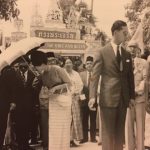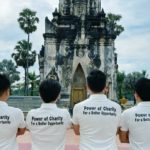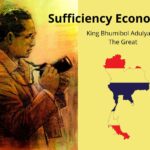
Aj. Chayakorn Sutakote
- People
-
Feb 08
- Share post
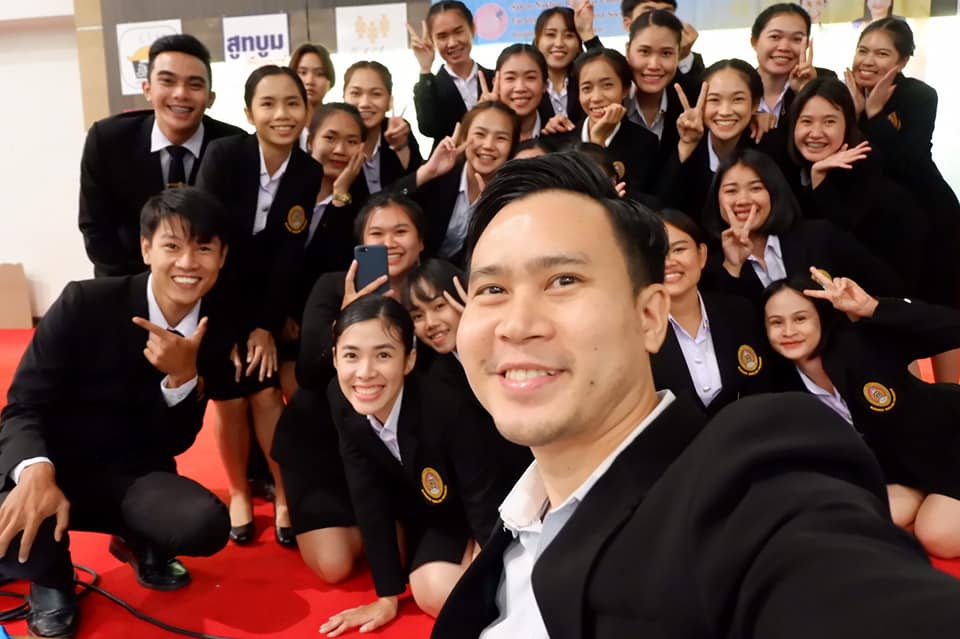
An Interview with Changemaker Ajarn Chayakorn (Wooddy) Sakon Nakhon Rajabhat University
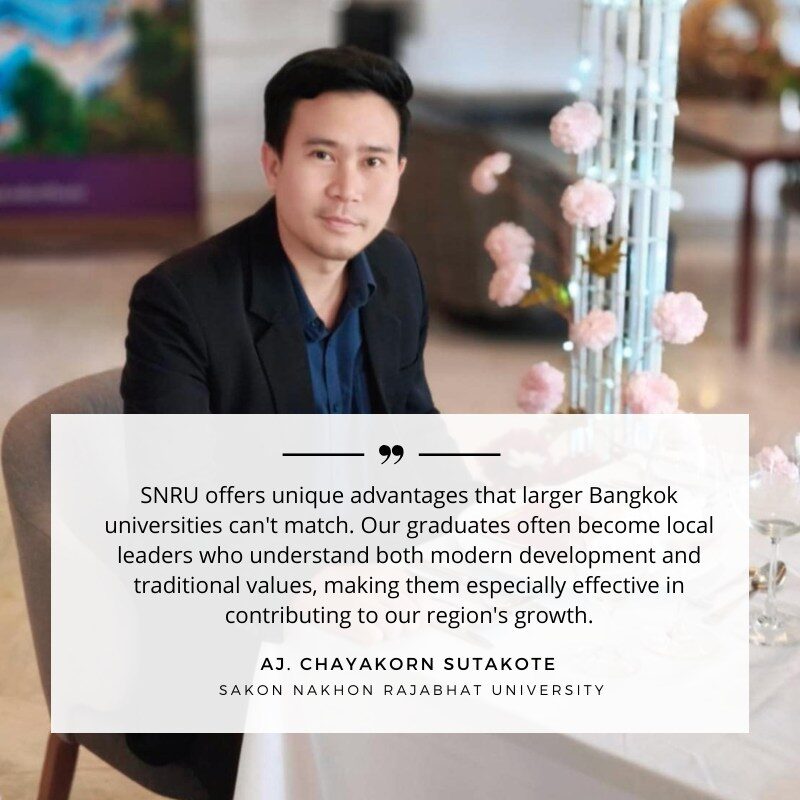
Can you tell me a little about your childhood? Where in Sakon Nakhon did you grow up, what did your parents do, where did you go to school, etc.
Ajarn Chayakorn Sutakote (อาจารย์ชยกร สุตะโคตร): I was born in Sakon Nakhon province, living in the city area, and I’m a native of Sakon Nakhon. I’ve witnessed the changes in Sakon Nakhon province from childhood until the present — from dirt roads where dust would rise with every passing, to major highways, crowds of people, tourists, and shopping malls. The province has developed significantly in many aspects.
However, I often think back to my childhood when Sakon Nakhon was still mostly natural surroundings. It felt like “this world has so many things to explore, and you have to go out and explore it yourself, experience it firsthand.” There were childhood feelings of enjoyment from walking outside with friends, crossing rice fields, walking through various gardens, running from dogs, finding fruits to eat along the way — that was enough for each day.
As I grew up, I started school like other children. I was fortunate that both my primary and secondary schools were very close to each other — Sakon Nakhon Kindergarten School and Sakolrajwittayanukul School. I later pursued my bachelor’s degree in English for Communication at Ubon Ratchathani University.
As for my parents’ occupation, they were teachers who are now retired. They stay at home taking care of their grandchildren and relax by growing vegetables for household consumption.
You started a charity group called “The Power of Charity,” along with several other ajarns at Sakon Nakhon Rajabhat University (SNRU). Can you tell me what the goal of this charity is and how it has helped those in need?
Ajarn Chayakorn: The Power of Charity started with just three members and later grew to four, consisting of Ajarn Surasit Uypatchawong of the Science and Technology Faculty, Assistant Professor Komsin Santhong, Ajarn Chayakorn Sutakote, and Ajarn Nathichai Thanaraj of the Humanities & Social Sciences faculty.
Our main purpose in creating this initiative was based on our belief that as university teachers, while we focus on academics and teaching, we were missing activities that would allow us to contribute to society. To put it simply, we wanted our lives to focus on more than just work — we wanted to do good and help others as well.
Additionally, this initiative allows us to visit different places and meet new people whom we can help, while also providing relief from work-related stress. For selecting scholarship recipients, we utilize our network of teachers, focusing on rural schools. We ask teachers to select students who are impoverished but demonstrate good character and diligence — those who are truly deserving of the scholarships.
As of now, we’ve been operating for four years and have helped 33 young students. We’ve seen both smiles and tears in each case. Our goal remains simple: to help society as much as we can. We don’t seek organizational support; just being able to travel together to distribute these scholarships and seeing the smiles of the children and their parents is enough for us.
Finally, we hope that The Power of Charity will continue until all of us retire from our academic positions together.
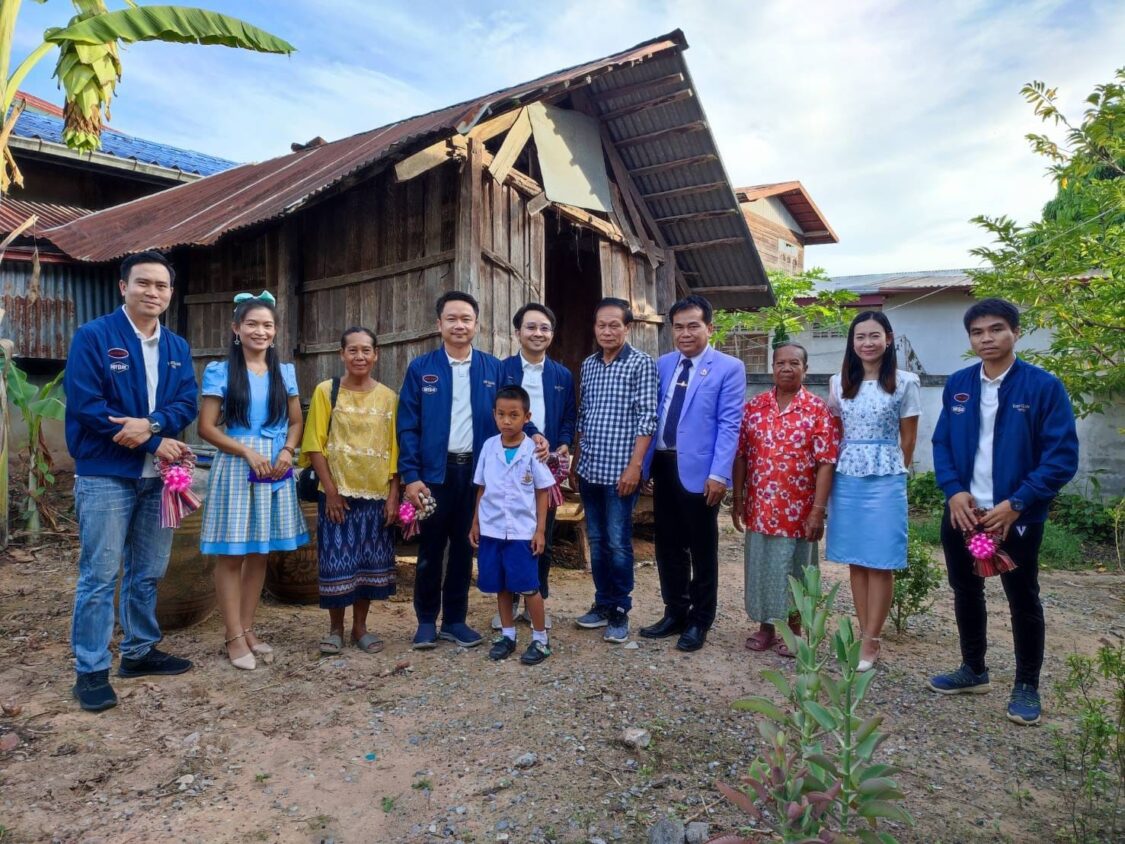
Ajarns at SNRU are not only teachers. They are active in developmental projects in the Sakon Nakhon community to improve the lives of local residents. Can you tell me about any past and/or current projects that you have been involved in which you take special pride?
Ajarn Chayakorn: For me, being a lecturer at Sakon Nakhon Rajabhat University is something I take great pride in. All my work revolves around teaching or anything that helps improve the university.
Currently, the university is aiming to become a university for the local community. This is evident as many lecturers have initiated more community-related projects. Personally, I have been appointed as the project leader, working with a team from the Faculty of Humanities and Social Sciences at Sakon Nakhon Rajabhat University on community development projects.
The focus is on two main projects:
1) Community Product Development Project: This project aims to strengthen the community and promote self-reliance by enhancing local products to generate income. It has been running for four years, during which significant improvements have been seen. Villagers have been able to apply the knowledge and techniques we provided to further develop their community.
2) Tourism Development Project at Ban Pracha Suksan Village: This project has been ongoing for three years to ensure clear development progress. It includes working with the community to create information signs for various tourist spots and training young tour guides to accommodate visitors. In 2025, we will witness a new tourist attraction — a Yae statue, symbolizing the village.
Over the past four years, I have felt immense pride in being part of the development process for each community. I even consider myself a member of those communities. Watching the communities grow and become self-reliant is truly fulfilling.
Lastly, I would like to express my heartfelt thanks to the communities we have worked with and the team from the Faculty of Humanities and Social Sciences, Sakon Nakhon Rajabhat University, for their dedication and collaboration in making these projects successful.
Has being able to speak English helped you in any ways outside of your work as an educator? Has it opened any doors for you that otherwise would have been closed?
Ajarn Chayakorn: Being able to speak English has opened many unexpected doors for me beyond teaching. It has allowed me to serve as a bridge between our local community and international visitors, helping promote Sakon Nakhon’s culture and traditions to a global audience.
I’ve been able to participate in international conferences where I’ve shared our local development projects and learned from educators worldwide. Personally, it has enriched my life through access to international media, research papers, and online resources that have helped me grow both professionally and personally.
When traveling, I can confidently navigate new places and connect with people from different cultures, which has broadened my worldview significantly.
What was the hardest thing about learning English for you? And how did you overcome it?
Ajarn Chayakorn: The most challenging aspect of learning English for me was mastering pronunciation, especially sounds that don’t exist in Thai, like ‘th’ and ‘r’. Initially, I was very self-conscious about speaking in public, worried about making mistakes.
I overcame this by creating a regular practice routine — I would record myself speaking, watch English movies with subtitles, and most importantly, I found a group of fellow teachers to practice with.
We made it fun by having English-only coffee meetings where we could practice in a supportive environment. Making mistakes became less scary when we were all learning together.
Gradually, my confidence grew, and now I focus on communicating effectively rather than achieving perfect pronunciation.
As the income of Sakon Nakhon families have grown over the past 20 years, more students are choosing to study at a university in Bangkok versus staying in Sakon Nakhon. What would tell students are the benefits of choosing SNRU versus going to study a larger university in Bangkok?
Ajarn Chayakorn: SNRU offers unique advantages that larger Bangkok universities can’t match. First, our strong connection to the local community means students can apply their learning directly to real-world situations in Sakon Nakhon. We have excellent relationships with local businesses and organizations, providing valuable internship opportunities.
In addition, our smaller class sizes allow for more personal attention and mentoring from professors — you’re not just another face in a crowd of hundreds.
Financially, studying at SNRU makes sense too. The lower cost of living means students can focus on their studies without the financial pressure they might face in Bangkok. Living expenses, including accommodation and food, are significantly lower here.
Perhaps most importantly, students at SNRU can maintain their connection to family and local culture while getting a quality education. They can build professional networks in the region where many plan to work after graduation.
Our graduates often become local leaders who understand both modern development and traditional values, making them especially effective in contributing to our region’s growth.
Suggest an Interview
Do you know a leading Sakon Nakhon entrepreneur, educator, or professional that we should interview? Contact us below with your suggestion.
- The 1st English Dhamma Talk Project, Sakon Nakhon Thailand - July 8, 2025
- Affirmations in Buddhism & Thailand - June 7, 2025
- Speak Thai Naturally Without the Gymnastics - April 20, 2025
